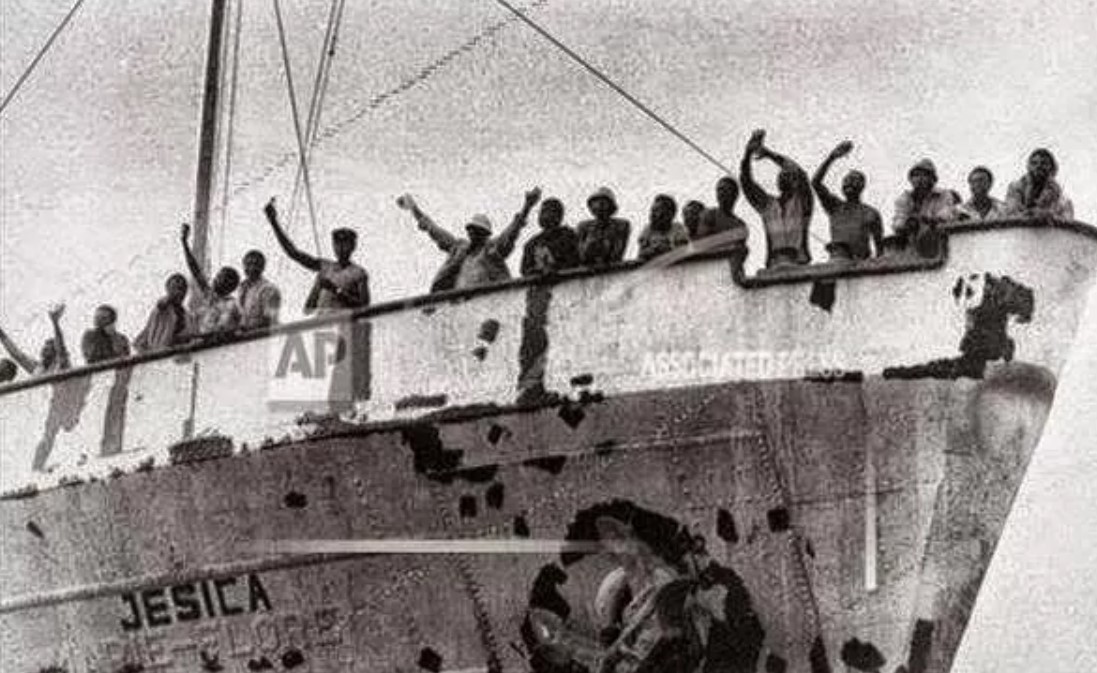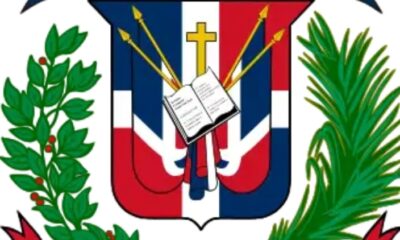Growing up in Nigeria, Ghana and some other neighbouring countries, you must have heard of the popular term “Ghana Must Go“. Yes! It is the name of a commonly used bag for storing belongings or packing loads when travelling.
But have you ever wondered why this bag, called “Chinatown tote” in the USA and “Tuekenkoffer” in Germany, is called “Ghana Must Go” in Nigeria and Ghana? Well, someone did not just sit and coin a name for the bag, a real-life incident that happened in Nigeria back in 1983 named the bag Ghana Must Go…Click Here To Continue Reading>> …Click Here To Continue Reading>>
More than half of those deported were Ghanaians who had come to Nigeria in search of better living in the 1970s when Nigeria was experiencing oil boom while Ghana, on the other hand, was witnessing political and economic hardship.
But the Nigerian government did not just wake up one day to expel over 2 million Africans from Nigeria, there were certain factors (one mentioned above) that culminated in the expulsion.
Nigeria and Ghana are good allies and have been maintaining their relationship before independence till today. But this friendship was threatened in the 1980s during the regime of the Ghanaian Head of State, Flight Lieutenant Jerry J. Rawlings and the Nigerian President, Alhaji Sheu Shagari.
Both African leaders were not in good terms and this was because President Shagari was a good friend of Ghana’s former president, Hilla Limann, whom Rawlings overthrew his government.

This deteriorated the Ghana-Nigeria relationship to the extent that in 1982, Rawlings raised an alarm that Shagari wanted to help Limann overthrow his government, and in response, Nigeria stopped the shipping of crude oil on a loan deal to Ghana. As this beef continued between the government, so did it go on among the citizens.
Maitastine Uprising of 1980
The foreigners in Nigeria were seriously threatening the peace of the country and Nigerians were not ready to take that. The situation began heating up in 1980 when a Cameroonian expatriate named Muhammed Marwa alias Maitastine spearheaded a religious uprising (Maitastine Uprising of 1980) that led to the death of many people.
Maitastine was an illegal immigrant like many of his followers who were from Burkina Faso, Niger and Cameroon. This uprising is considered the second most tragic event in Nigeria after the Biafran war.
It should also be noted that there had existed an old wound in the Nigeria-Ghana relationship back in 1969 when the Ghanaian government effected the Alien’s Compliance Order. Nigerians and other African immigrants were deported on the claim that Ghana was in recession.
The Last Straw
The last straw that broke the camel’s back was the robbery at Ekwueme’s house. Alexander Ekwueme, the then Nigerian Vice President, was robbed by a group of armed robbers which consisted mainly of expatriates. When the robbers were caught by the police, it was discovered that two of them were Ghanaian. READ FULL STORY HERE>>>CLICK HERE TO CONTINUE READING>>>
This sent the whole of Nigeria crazy. Instant action was taken by the Nigerian government and the Ministry of Internal Affairs. On the 17th of January, 1983, the Nigerian Minister of Internal Affairs, Alhaji Alli Baba, announced the immediate expulsion of all illegal immigrants in Nigeria within two weeks. President Sheu Shagari also added in a statement,
“If they don’t leave, they should be arrested and tried, and sent back to their homes. Illegal immigrants under normal circumstances, should not be given any notice whatsoever. If you break a law, then you have to pay for it.”
Panic gripped all foreigners without papers in Nigeria for it was the least expected action of the Nigerian government. Over 1 million Ghanaians were thrown into confusion and indecision. It was rumoured that the Federal government gave power to Nigerians to confront any alien after the ultimatum given to leave.
Ghana Must Go
This scared the expatriates and sent them fleeing with and without their luggage. Those who could pack their belongings used the biggest of bags available which happened to be the big bag which is now called Ghana must go.

This mass deportation met global criticisms. The act was condemned by many humanitarian organizations across the globe. The US Department of State said the expulsion order was “shocking and a violation of every imaginable human right.” All these did not make the Nigerian government reverse the order. It still bent on expelling all illegal immigrants in the country.
Also, there were claims that the “corruption-riddled” government of President Sheu Shagari ordered the deportation to divert attention from its shenanigans because an election was forthcoming. Truly, the Shagari government had to pull a stunt to divert the attention of Nigerians and win their votes.
Ghanaians trooped out en masse for they knew Nigeria was no longer safe for them. It was indeed a massive exodus that automatically rooted its feet in the history of Nigeria and Ghana. They (Ghanaians) camped at the Seme border as they waited to enter Benin Republic where they hoped to find a ship to Ghana.
OldNaija gathered that the land route through Togo was much preferable and convenient but the Ghanaian dictator, Jerry J Rawlings had closed the Ghana-Togo border due to an attempted coup in 1981. Togo also closed down its border with Benin in order to avoid refugee crises.
After some time, the Ghanaian military ruler, Jerry Rawlings, opened the Ghana-Togo border and left Togo no choice but to do the same with Benin Republic and allow refugees to flow across like water.

It was indeed great news for the Ghanaian refugees. On getting home, they were welcomed by relatives and friends amidst tears. Jerry Rawlings also visited some of them at Tema harbour and assured them that his government would provide assistance in every possible way.
This is the real bitter story behind every ‘Ghana must go’ bag. However, it should be known that today, Nigeria and Ghana remain the best of friends as they let the past behind them. This is evident in the entertainment, sports and politics sectors of the two countries.






















